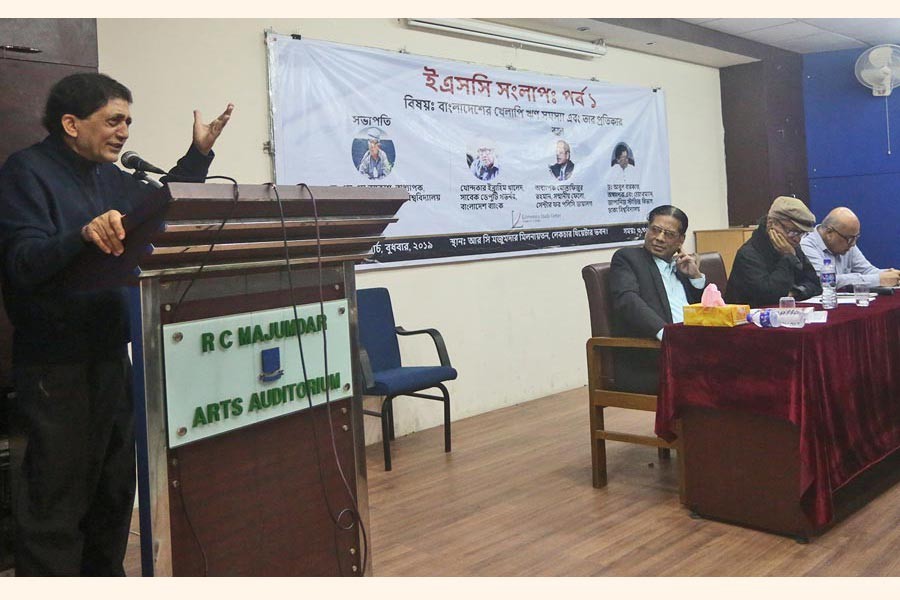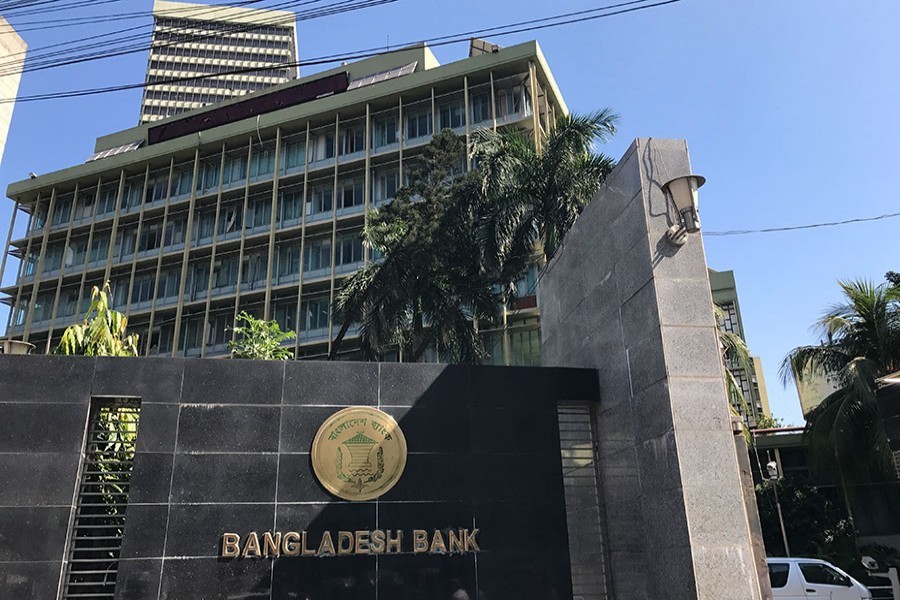The existing Banking Companies Act (BCA) should be reformed to empower the Bangladesh Bank (BB) with the authority of dismissing the chairmen and directors of the state-owned banks (SoBs), said BB former deputy governor Khondkar Ibrahim Khaled.
Such legal reforms can help the SoBs to lower their non-performing loan (NPL) ratio by making their high-ups more accountable, he said while speaking at a seminar at Dhaka University (DU) on Wednesday.
"At present, the BCA empowers the central bank to dismiss the chairmen and directors of the private commercial banks (PCBs). But it is not currently applicable for the SoBs."
"But ultimately, both the SoBs and the PCBs are scheduled banks. Why should there be two different sets of rules for them? This is absolutely wrong," Mr Khaled said.
The veteran economist also noted that the ratio of NPL is much higher for the SoBs, while it is still at a manageable level for a large number of PCBs.
"The reason why the NPL ratio is still relatively low for the PCBs is - the central bank has a much stronger supervision on them."
"Meanwhile, the NPL ratio of the SoBs is more than 20 percent, because the central bank has no supervisory power over them." he added.
The banking sector specialist also cited the example of Basic Bank Limited to make his point.
"Basic Bank once had an NPL ratio of less than 2.0 percent. But then, a new chairman came and he brought a new managing director of his choice. Within two years, the bank's NPL ratio rose to more than 80 percent."
"The former central bank governor Dr Atiur Rahman, at that time, wrote to the then finance minister (A M A Muhith), recommending dismissal of the chairman".
"However, that letter never proceeded further from the desk of the finance minister. Ultimately, that chairman remained unscathed, and later resigned on his own just a day before the completion of his tenure."
"A banking sector of the country cannot be run with such type of governance," Mr Khaled opined.
The former BB deputy governor also alleged that a vested quarter is currently lobbying to the government for relaxing the rules of loan rescheduling.
"The lobbyists are trying to redefine the very definition of loan defaulter to avert (imposition of) that label on them. According to their proposal, there will be no limit on how many times a loan can be rescheduled," Mr Khaled claimed while citing unnamed sources.
"The proposal is now waiting for approval of the finance minister. If such provision is implemented, no foreign bank will recognise any Letter of Credit (LoC), issued by any local bank of Bangladesh."
"It will be disastrous for the whole banking sector of the country. I hope the policymakers will refrain from giving green light to such a proposal," he further said.
The former BB deputy governor also observed that political commitment is more important than legal reforms for addressing the bulging of NPL in the banking sector.
"We need the same level of political commitment from the government that we have seen in case of (holding) the trials of the 1971 war criminals," he added.
Experts at the event also observed that an overwhelming presence of bureaucrats and politicians in the SoBs' boards of directors is detrimental for their governance.
 Economist Dr Abul Barkat, chairman of the Japanese Studies Department of Dhaka University, addressing a session of 'ESC Dialogue' at RC Majumdar Arts Auditorium of DU on Wednesday — FE photo
Economist Dr Abul Barkat, chairman of the Japanese Studies Department of Dhaka University, addressing a session of 'ESC Dialogue' at RC Majumdar Arts Auditorium of DU on Wednesday — FE photo
"The boards of the SoBs are composed of two types of people - politicians and bureaucrats," said Professor of Economics at DU Dr Abul Barkat.
"The chairmen of the banks are never consulted before nomination of the directors," claimed Mr Barkat, who was a former chairman of Janata Bank Limited.
Experts at the event also observed that the rising volume of NPL is causing growing economic inequality in the country.
"The rise in NPL is ultimately increasing lending rate and cost of capital, which is detrimental for investment in the country," said Distinguished Fellow of the Center for Policy Dialogue (CPD) Dr Mustafizur Rahman.
"The income difference between the richest five percent and the poorest five percent in Bangladesh has increased from 32 times in 2010 to 121 times in 2016."
"The underlying reason for this growing inequality is the culture of loan default," he added.
Earlier, the keynote presentation of the event noted that the percentage of businessmen among the parliamentarians has risen from 18 percent in 1973 to 61 percent at present.
The presentation also called for greater social awareness regarding the bad debt issue and creating social stigma against the loan defaulters.
Najiur Rahman, a student of Dhaka University, presented the keynote paper.
Professor of Economics at DU M M Akash chaired the programme.
mehdi.finexpress@gmail.com


